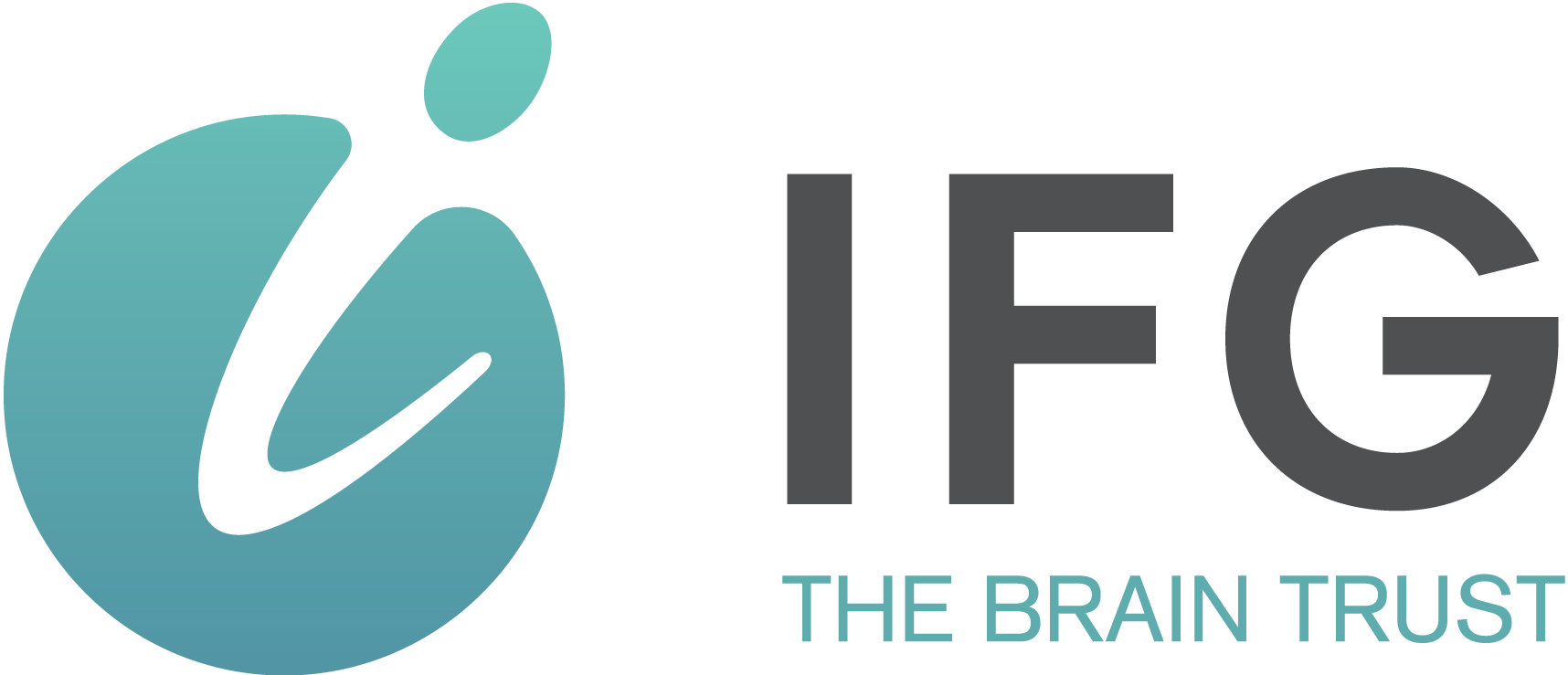- July 13, 2023
Harnessing Technology: Financial Planning Tools and Software for RIAs

In the May 2023 edition of Financial Planning, research shows that making wealthtech spending decisions has become a high-pressure situation, underscoring the critical importance of reliable financial planning tools in today’s economic landscape.
“The right tech allows firms to not only drive greater efficiency but differentiate themselves in a market still navigating a pandemic-fueled shift from physical-first to digital-first…
It’s clear that advisors recognize the role of technology in saving time and money, introducing operational efficiencies and elevating the client experience.”
Eric Clarke, Founder & CEO of Orion
The majority of managers surveyed who integrated wealthtech effectively were also the firms that showed the best growth trajectory. The long game is better technology integration ultimately creates time and resources that can be directed toward optimizing a firm’s growth potential.
Over two-thirds of respondents in the Orion research indicated that the top ask from their technology spend was a more personalized client experience.
“There’s so many different investment strategies and advisor strategies with how they communicate with their clients, so having the ability to customize how they’re presenting their material to their end users is really important to advisors…the cookie-cutter stuff is longer sufficient.”
Real-time financial activity reporting, advanced risk-profiling, enhanced security and fraud mitigation rounded out the top vote getters in the opinion poll.
Robert K. Steinberg, Founder & CEO of Blue Chip Partners had this to say,
“For a firm our size, it ends up being a pretty substantial investment…but it was just one of those things where we’re not sure how we’re going to do it…
Technology, with its ability to solve problems without hiring scores of new staff members and training them, allows us to keep our firm’s culture intact.”
The Financial Planning article for all of its rich research and insightful reporting reiterates the fact that we all want better fintech but we’re not sure where or how to go about getting it and we’re scared of making the wrong decisions. Does that about sum it up?
Technology is important. But it’s a moving target. The right wealthtech solution shouldn’t be the only deciding factor where you choose to hang your hat.
As an independent financial planner, staying on top of the evolving industry trends and tech stacks is a necessary component of providing your clients with the best possible advice. Harnessing innovative financial planning tools and solutions in order to enhance your RIA practice can provide increased accuracy, efficiency, scalability, and communication with your clients—all leading out to bigger gains for both you and them.
In this post, we’ll dive into the various options available pertaining especially to financial planning software that will help maximize productivity while minimizing unnecessary costs from your operations.

The Importance of Technology for Independent Financial Planners
In today’s fast-paced financial landscape, it’s critical that independent financial advisors learn how to leverage technology to stay ahead of the curve. The right financial planning tools allow planners to efficiently analyze their clients’ financial situations, provide clear and targeted guidance, and develop personalized strategies to help them achieve their financial goals.
Automation has taken the industry by storm (and every other industry for that matter) and it’s not going anywhere. Refusing to use a tech stack could potentially hold you and your practice back.
While you can’t and shouldn’t rely on technology to do what you do best, you CAN use it to help with the parts of your day-to-day operations that take up too much of your time. Imagine being able to focus on what you love–serving your clients–while saving the time-consuming calculations or administrative tasks to a tool that can get the work done within seconds.
By using financial planning tools, you can streamline your workflow, provide more comprehensive services, and ultimately build stronger, more successful relationships with your clients.
Choosing the Right Financial Planning Tools for Your Practice
Identifying and implementing the right solutions for your practice is crucial to both your success and the satisfaction of your clients. With an ever-growing array of tools and technologies available, it can be overwhelming to determine which ones will best meet your needs.
That’s where platforms like LPL ClientWorks come in, offering integrated solutions that cover everything from e-signature to portfolio reviews. However, identifying the right solution is only the first step – proper implementation and ongoing communication with clients is equally important.

6 Must-have Financial Planning Tools We Recommend
Here are some of our recommendations of proven wealthtech options that can help improve productivity within your practice. Please note: IFG doesn’t mandate vendors. We provide our members with a list of vetted options for financial planning tools and allow them to choose what works best for them and their practice!
1. LPL ClientWorks
Independent financial planners face a unique set of challenges compared to those working in larger institutions. With many tasks to accomplish on a daily basis, it can be difficult to stay on top of everything, including client management, investment planning, administrative tasks, and regulatory compliance. One tool that has been gaining popularity among financial advisors is LPL ClientWorks.
LPL ClientWorks is a comprehensive cloud-based platform designed to streamline the daily tasks of independent financial planners and advisors. This tool is self-contained and comes equipped with tools to manage client accounts, create investment plans, produce client reports, and stay compliant with regulations. LPL ClientWorks is compatible with a wide range of devices, making it easy to use from your desktop, tablet, or smartphone.
How does LPL ClientWorks work?
LPL ClientWorks is a web-based application that allows the independent financial planner to securely access everything they need from one place online. The platform is user-friendly, and new members are given comprehensive training on how to use the program. Some of the features that LPL ClientWorks offers include account opening, management, and maintenance, investment portfolio management, trading and rebalancing tools, financial planning software, and digital document storage.
Why should independent financial planners use LPL ClientWorks?
LPL ClientWorks was designed to help independent financial planners and advisors improve their businesses, reduce costs and increase efficiency. Financial planners can use the platform to improve the level of service they offer to clients, freeing up time for more productive tasks such as client acquisition and business development. Additionally, LPL ClientWorks ensures compliance with industry regulations, which reduces the risk of fines and penalties, as well as ensuring the ethical and legal business conduct standards of independent planners.
2. Customer Relationship Manager
A CRM is a platform that allows businesses and organizations to manage their interactions with customers and clients. It’s a system that stores important client information, including contact details, financial records, communication history, and more. A CRM can be very helpful for independent financial planners who need to manage multiple clients and accounts.
How Does a CRM for Independent Financial Planners Work
By having all of their clients’ information in one unified place, independent financial planners can have a better understanding of their clients’ needs, which can enable them to provide more personalized services.
When choosing a CRM, it’s all about the features. One important feature is integrations. A CRM that integrates with other software applications, such as tax programs and accounting software, can help independent financial planners streamline their workflows and save time.
Customization is also critical. A CRM should allow independent financial planners to customize client fields so that they can capture all of the necessary data. Additionally, automated reporting can make it easier for independent financial planners to pull client reports and track their progress.
Why Should Independent Financial Planners Use a CRM
There are several reasons why independent financial planners should use a CRM. First, it can help them manage their client relationships more effectively. With all of the necessary data stored in one place, independent financial planners can quickly and easily review client information and transactions, making it easier to provide personalized recommendations and create customized financial plans for each client.
Second, a CRM can help independent financial planners save time. With all of the necessary information in one place, they no longer have to switch between different programs or paper files. Instead, everything they need is just a click away.

3. Performance Reporting Tools
Performance Reporting Software is a digital tool used to generate performance reports, track portfolio performance, and assess investment strategies. It offers an analytical framework that allows financial planners to analyze their clients’ data and generate meaningful insights to make informed decisions. These tools are equipped with various features that allow users to track custom benchmarks, generate detailed reports, and gain valuable insights on their investment strategies and performance.
How Does Performance Reporting Software Work
The software’s reporting functionality provides financial planners with a clear and concise view of their clients’ investments at any given time. This feature can help identify underperforming assets, analyze market trends, and assess portfolio risk. It also helps financial planners make decisions that are more data-driven and less reliant on gut feelings.
On the other hand, this type of software’s customizable report feature allows financial planners to generate reports that cater to their clients’ specific needs. This feature can analyze performance by accounts, investment strategies, or asset class. It can also create reporting packages that look great and can be easily shared with stakeholders for critical decision making.
Why Should Independent Financial Planners Use Performance Reporting
Performance reporting software can help financial planners streamline their practices and offer their clients a much higher level of service. The software gives financial planners an in-depth understanding of their clients’ investments, thus enabling them to offer personalized investment advice that meets individual client goals, expectations, and constraints.
4. Portfolio Analysis Software
Portfolio analysis software is a suite of tools designed to help with the collection, organization, analysis, and visualization of large amounts of data. Using portfolio analysis software can also help independent financial planners stay competitive by providing them with a holistic view of their clients’ financial situations and enabling them to make informed decisions based on data-driven insights.
How Does Portfolio Analysis Software Work
Financial planners can leverage the software’s visualization tools to present comprehensive reports to clients, depicting the client’s financial status, portfolio performance, and potential investment opportunities. This, in turn, helps build trust and credibility with clients, leading to improved client retention rates and the possibility of acquiring new business through referrals.
The software usually consists of several components, including data retrieval and cleaning tools, data transformation and formatting tools, data analytics and statistical modeling tools, and visualization and reporting tools.
The software can also provide machine learning capabilities to help improve decision-making based on historical data trends. Independent financial planners can use these tools to gather and analyze data from various sources, such as client portfolios, market data, and economic indicators, to generate insights on their clients’ financial status and expected outcomes.
Why Should Independent Financial Planners Use Portfolio Analysis Software
One of the key benefits of data analysis software is that it can automate and streamline time-consuming data analysis tasks, such as reconciling client data, comparing portfolio performance, and generating reports. With the software, independent financial planners can have more time to focus on high-value tasks, such as building relationships with clients, formulating investment strategies, and acquiring new business. Additionally, the software can help reduce the risk of human error and ensure that analysis is based on the most current and accurate data.
Another benefit of data analysis software is that it can help independent financial planners uncover less-obvious connections between data points and perform simulations that can predict the potential impact of different investment and financial planning scenarios. For instance, financial planners can use Monte Carlo simulations to test their clients’ portfolio’s sensitivity to different market scenarios and identify potential areas of risk. The software can also enable financial planners to identify patterns and trends in client spending and identify suitable investment strategies based on changing client financial needs and behavior.

5. Digital Communication
Digital communication software provides a secure, accessible, and fast channel for communication. Most software comes with chat functionality, video conferencing, and other collaboration and communication tools. It removes the time and location barriers, enabling conversations that are more natural, whether by text, voice, or images. Some examples include Slack, Teams, Discord, and other popular communication tools.
How Do Digital Communication Tools Work
Digital communication software provides financial planners with the ability to connect with clients and prospects without the expense and inconvenience of travel. Virtual meetings offer flexibility, convenience, and time management for both parties. The software also provides a way to share documents and other visuals in real-time, which makes it easier to explain details quickly during virtual meetings.
Why Should Independent Financial Planners Use Digital Communication
One of the major benefits of digital communication software is its security features. Financial planners can confirm the identity of clients and prospects before any communication, which offers an additional layer of security. The software allows for the secure storage of sensitive data that can be shared with both current and potential clients. As more people shift to remote work and online communication, it becomes more crucial than ever before for financial planners to prioritize security measures.
Digital communication software also offers instant notifications, which is vital when it comes to timely responses to clients’ and prospects’ needs. The software allows financial planners to send mass notifications to everyone on their contact list in just one click. For instance, a financial planner can quickly forward important messages or documents (like changes in the stock market) to stakeholders.
6. Compliance Software
Compliance is an essential aspect of the financial industry that supports the integrity and reliability of the industry. It aims to ensure that financial advisors and planners adhere to the regulatory standards set forth by regulatory authorities. One of the most significant challenges for independent financial planners is meeting these compliance requirements. To achieve this, technology has come up with the compliance software solution.
How Does Compliance Software Work
Compliance software is a program designed to help independent financial planners maintain regulatory compliance requirements. The software identifies the regulatory environment of each financial product and ensures that the relevant rules and regulations are applied correctly. Compliance software also helps financial planners reduce the chance of regulatory infractions by alerting them about any suspicious activities that a client may be undertaking. With the help of compliance software, financial planners can ensure that their activities comply with all regulatory requirements, without any ambiguity.
Compliance software comes with many features that make it easier for financial planners to manage their practices. One of the most significant benefits is the automated tracking of all client documentation, including account opening forms, risk assessment, and investor suitability documentation. This feature ensures that all paperwork is complete, compliant, and up-to-date. Compliance software also allows financial planners to perform compliance checks at multiple levels, from pre-trade validation to post-trade analysis, ensuring that each step of the process remains compliant.
Why Should Independent Financial Planners Use Compliance Software
Compliance software comes with many features that make it easier for financial planners to manage their practices. One of the most significant benefits is the automated tracking of all client documentation, including account opening forms, risk assessment, and investor suitability documentation. This feature ensures that all paperwork is complete, compliant, and up-to-date. Compliance software also allows financial planners to perform compliance checks at multiple levels, from pre-trade validation to post-trade analysis, ensuring that each step of the process remains compliant.

How IFG Can Help You Leverage the Right Financial Planning Software
IFG can be your surrogate IT department. We believe in a hands-on, top-down approach to helping you find the right wealthtech solutions to reinforce your practice’s core competencies and bolster your firm’s strengths in the areas outside your wheelhouse.
We encourage you to talk to advisors in IFG’s stable and get real-time business intelligence on the technology platforms and financial planning tools they use. Find out straight from IFG thoroughbred’s mouths what’s working and what’s not.
Whether you’re looking for financial planning software, reporting, customer relationship management, market analytics or portfolio analysis and construction, IFG can be an MVP on your team.
We will help you find the best-in-class performers in the key disciplines you’re searching for and help you narrow down the options to make the most well-informed operational and budgetary decisions possible.
IFG is integrated with LPL, the largest independent broker-dealer in the country. LPL invests more annually in wealthtech research than most firms make. LPL believes being on the cutting edge of the technology landscape is more important now than ever before, especially since Artificial Intelligence (AI) has burst onto the scene as the Great Disruptor.
LPLs tech chassis integrates seamlessly with dozens of platforms which gives you the advantage of building your technology stack exactly how you want it. The days of take it or leave it are gone from the LPL culture. You asked for control and now you have it with IFG helping lead your tech research and development.
Some of the advantages you’ll find on the LPL stack:
- CRM integration with RedTail and Salesforce
- Single location login
- Integration with Wealthvision (eMoney), MoneyGuide Pro and others
- Client access portal with Account View
- Custom designed applications

The Bottom Line
At IFG, we are advisors for advisors. We get it. Technology solutions are constantly evolving and let’s face it. For many of us, tech is a necessary evil. Put the Brain Trust to work for you and let us help you navigate the wealthtech options that you want and need to make your firm grow and thrive.

